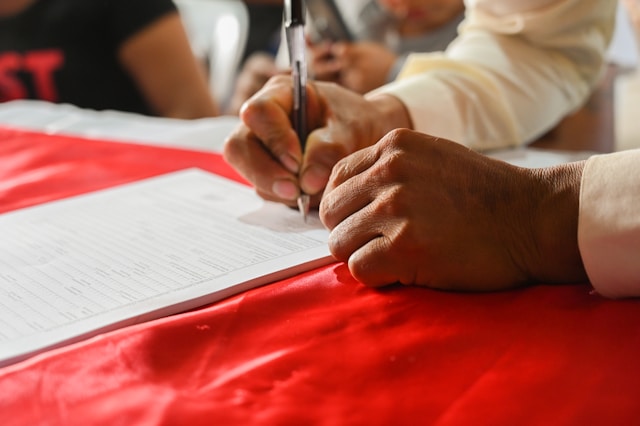Check out the latest news on laws and regulations.

International Probate:
Securing your Inheritance in Argentina
Globalization has propelled the cross-border circulation of people, capital, labor, and technology. In a world marked by mobility, where individuals often have multiple passports or residency cards, the holding of assets in different countries has led to a surge in international probate proceedings. International probate proceedings most often occur upon the death of a person having assets or heirs in a country other than where that person resided.
Let us take, for instance, a French national who lived in Argentina and owned real property and other assets in Argentina. Let us assume that, upon death, that person (called the decedent) had children living in France. How do those children (the heirs) receive their parent’s Argentine assets. Do they undertake probate proceedings in France? In Argentina? Or both countries? In other words, the heirs must identify the right place (jurisdiction) and law governing the probate of the Argentine assets.
Key Questions for International Probate
The following paragraphs respond to certain pivotal questions surrounding the inheritance of property or assets situated in Argentina within the framework of an international probate process. These questions include:
- Where should probate be filed if the decedent resided in Argentina or was a natural-born Argentine citizen?
- What happens to real property held by the decedent in Argentina? Does it matter if the decedent lived outside Argentina at the time of passing?
- How do heirs living in another country take title to the Argentine assets? Do they need to open a probate proceeding in Argentina?
These questions usually arise when the decedent was a foreign national living in Argentina, a foreign national not living in Argentina but owning assets in Argentina, an Argentine national residing abroad, or an Argentine national living in Argentina but with property in Argentina.
Foreign Nationals
If a foreign national owns real property or other titled (registered) assets in Argentina at the time of death, there is no escaping an Argentine probate proceeding to lawfully retitle those assets to an heir. Under Argentine law, the applicable law and proceedings are determined by the decedent’s last domicile at the time of death and by the place where the assets are located. If a foreign national’s last domicile (not necessarily the place of death) is in Argentina, a probate proceeding must be opened in Argentina. If the decedent owned property outside Argentina (say, in France), then, subject to the laws of that country, a second (ancillary) probate proceeding must be opened in that country. Similarly, if a foreign national dies in a foreign country, but owned property in Argentina, then an ancillary probate proceeding is required in Argentina with respect to the asset(s) held in Argentina.
Argentine Nationals
The exact same rules apply to Argentine nationals. If the Argentine national’s last domicile was in Argentina, the Argentine probate proceeding will govern all property, except for property owned in another country. Likewise, if the Argentine national´s last domicile was abroad at the time of death, only the Argentine assets would be ruled by the local proceeding and law.
Whether involving foreign or Argentine nationals, the decedent’s domicile is usually (but not always) determined by reference to that person’s death certificate.
When Argentine Law Collides with Foreign-Law Wills
One thing to know about Argentine probate law is that the law restricts the decedent’s testamentary discretion. Even if there is an express will, that will cannot alter the entitlements of “statutory heirs” (e.g., the surviving spouse, children, parents). In the case of children (and no surviving spouse), the decedent may only leave one-third to others who are not statutory heirs. For example, if the decedent died with one million dollars in the bank and was survived by four children, no less than six hundred sixty-seven thousand must be divided equally among the four children, leaving only the remaining one-third (three hundred and thirty-three thousand) available for testamentary disposition to another person.
These and other Argentine laws of probate will apply to all persons—nationals or resident foreigners—domiciled in Argentina at the time of death.
Can an Heir Manage an Argentine Probate Proceeding from Abroad?
This is a common concern expressed by heirs when filing for probate in a foreign country and the answer is yes.
In response to COVID-19, the Argentine judicial system changed the judicial case management. Since 2020, filings may be made electronically and often the courts allow remote hearings via digital platforms for parties residing outside the court’s jurisdiction. While certain documents still need to be filed in their original form, the overall process has transitioned to a predominantly digital format.
Even electronic filings on behalf of the heirs still require “wet” signatures. To avoid cumbersome logistics, it is generally advisable for the heirs to grant a special (administrative and judicial) power of attorney to their legal representative (usually the attorney representing them).
Argentine probate proceedings are managed by civil (as opposed to “commercial”) courts sitting in the district having jurisdiction over the decedent’s last domicile or the location of the asset(s). The court must rule on the existence of a will, the identification of heirs, and the decedent’s estate subject to probate. If asked to probate a foreign will, the Argentine court will require that will be authenticated and filed (as a certified translation to Spanish). The court will oversee the payment of all outstanding debts pending over the estate and the eventual distribution of assets or proceeds to the heirs (statutory and testamentary) or their assignees.
Final Considerations on International Probate
The number of international probate proceedings are quickly increasing commensurate with movement of people and their investments. They require careful management, including an early explanation to the heirs of the process, timing, and expectations. The attorney must be diligent in moving the process to conclusion in reporting developments to the heirs. Without careful and qualified legal support, frustration and surprise often await the expectant heir. These factors set apart the international probate from proceedings governed by a single country’s law.
More information
If you would like to discuss this matter with the attorneys at Wiener Soto Caparros, please do not hesitate to contact our author.
Disclaimer
This article is based on publicly available information and is for informational purposes only. It is not intended to provide legal advice or an exhaustive analysis of the issues it mentions.





